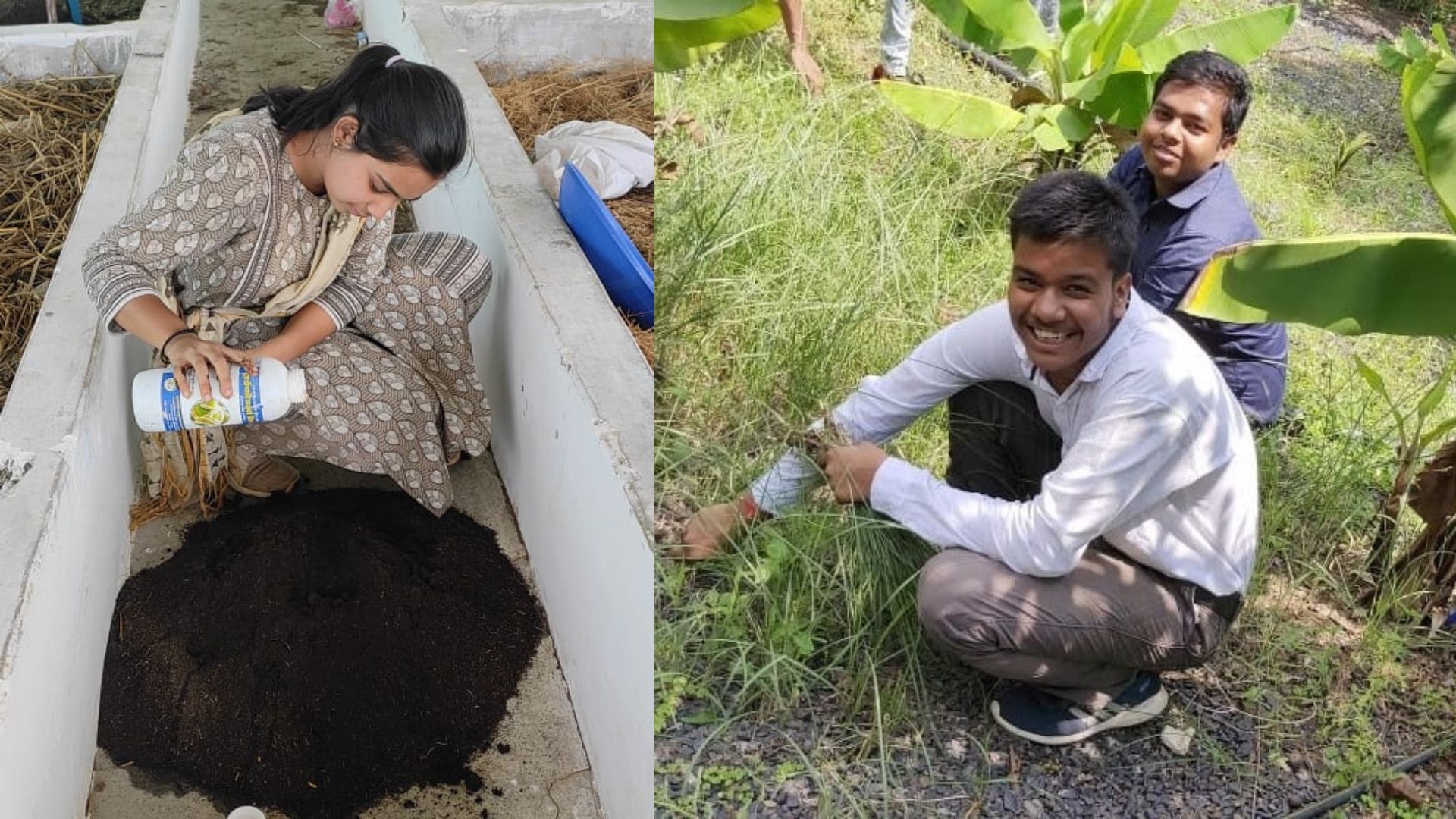Virtual English Language Fellows teach climate change activists and students to communicate even more effectively.
June 2022

Khushbu Sharma (left) and Akshay Sharma (right, front) learned to express themselves more confidently in English through the training program. The program focused on improving participants’ professional communication skills to tackle the climate crisis. Photographs courtesy Khushbu Sharma and Akshay Sharma
Riddhi Rathore understands the challenges that climate change poses for the world. In January, she began a master’s program in biotechnology at Dr. Yashwant Singh Parmar University of Horticulture and Forestry in Himachal Pradesh, focusing on managing water stress on crop plants.
But she long felt she had one area of weakness—conveying her ideas convincingly in English.
“As scientists we gather our work in research papers, almost always in English,” she says of herself and her fellow aspiring scientists. “When we communicate with foreign colleagues, it is mostly in English. In general, there is no problem with our English, but the thing we lack is confidence, especially to speak with people in other countries. We often think our English and accent are not good.”
So last year she did something about it. In her final year as a bachelor’s student in agriculture at Jawaharlal Nehru Agricultural (JNKVV) University in Madhya Pradesh, Rathore enrolled in a 10-week course aimed at improving students’ ability to express themselves in English with a focus on oral communication.
Speaking confidently
Individual class meetings were devoted to different themes like healthy living, music, travel, community activism and the environment. Students typically had to read a text or watch a video before each class and then discuss the vocabulary used and the issues raised—first in small “breakout groups” of four students and then in the whole class.
Students described the course, “English for Academic Success,” as fun and engaging. Rathore says the course gave her increased confidence while conversing in English. “I used to be terrified to speak [in English] on stage,” she says. But the improvement showed when she gave her final presentation at the end of the course. “First year students said they want to speak like me!”
Akshay Sharma, a bachelor’s student in biotechnology at JNKVV, also took the course. Sharma says all students had to share their views on the various topics covered in the course, orally and sometimes in written form.
“I used to write very long sentences. Christine [our Virtual English Language Fellow (VELF)] advised me to write short sentences, and to use language appropriate to the setting and the person I was addressing.” He says the class helped him overcome an “inferiority complex” he had when expressing himself in English.
Khushbu Sharma, another student, says the changes this course brought in confidence while speaking was visible to all. “There were people in class who, at first, hesitated in expressing themselves in English. But by the end of the class, they were discussing freely.”
The course was sponsored by the U.S. Embassy in New Delhi in collaboration with the U.S. Consulate General in Mumbai, as part of the U.S. government’s VELF Program. The program engages highly qualified U.S. educators in the field of Teaching English to Speakers of Other Languages (TESOL) to participate in 10-month-long fellowships on different themes at academic institutions throughout the world. This course was focused on helping climate change stakeholders learn English for deeper engagement and was taught remotely by VELF Christine Eide.
Reaching out effectively
William Kennedy, another VELF, taught three remote courses this past winter, focused entirely on improving participants’ professional communication skills in climate change.
The first course was for Indian activists from NGOs around Maharashtra working to combat the climate crisis. He also taught courses for environmental science graduate students at Dr. Babasaheb Ambedkar Marathwada University in Maharashtra, and Maharaja Sayajirao University of Baroda in Gujarat.
“I wasn’t trying to help them with climate change; I figured they knew a lot more than I did,” says Kennedy. “I was helping them with presenting the information—how to put forward a cohesive message.”
The courses involved working in pairs and small groups and looking closely at existing climate change documents. “We worked on teasing out how language is used, and how to present the information themselves; how to tailor it to the audience. That could be a supportive government organization or a group of farmers who knew very little about the issues.”
Kennedy has taught English for 30 years in about 20 countries. He says teaching virtually as an English Language Fellow during the pandemic had both a good and a bad side. “Teaching is about relationships and teacher awareness, and that becomes so much harder when it’s through a screen,” he says. However, as he points out, virtual courses like these make it possible to bring together people from across a wide geographic area. The programs make “participation possible for people who in the past might not have been able to attend,” and increase our collective ability to tackle critical global issues through effective communication.
Burton Bollag is a freelance journalist living in Washington, D.C.
I enjoy looking through an article that will make men and women think.
Also, thanks for allowing for me to comment!
ceri 138
I enjoy looking through an article that will make men and women think. Also, thanks for allowing for me to comment!